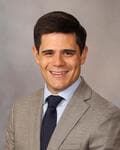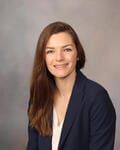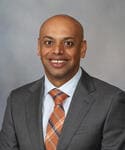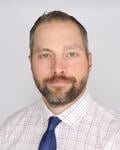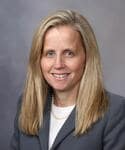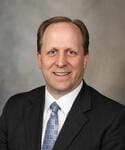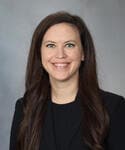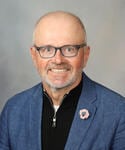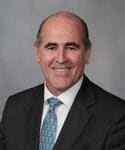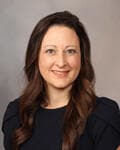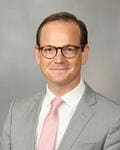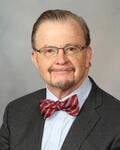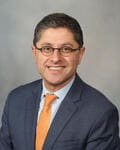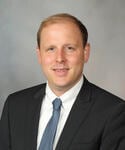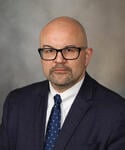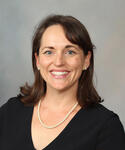Meet The Faculty
Compassionate care for patients and families, as well as experienced medical and allied health teams, are hallmarks of Mayo Clinic's transplantation services. Mayo Clinic's campus in Rochester, Minnesota, offers heart, kidney, liver, lung, and pancreas transplants. Bone marrow transplants (BMTs, or blood and marrow transplants) are offered through the Division of Hematology.
Abdominal transplant procedures are performed at Mayo Clinic Hospital, Methodist Campus, in operating rooms that are specially set up for these complex operations. After each transplant, patients are cared for by staff members experienced in the needs of patients recovering from transplant surgery.
Mayo Clinic sees outpatients with transplant surgical issues from across the U.S. and around the world, as well as from the large local population. See transplant patient stories.
In addition, the Division of Subspecialty General Surgery at Mayo Clinic's campus in Rochester, Minnesota, has one of the largest and most experienced groups of gastroenterologic, hepato-pancreatico-biliary (HPB), and general surgeons in the United States. Gastrointestinal surgeons provide comprehensive diagnosis, management, and follow-up of surgical disorders of the liver, pancreas, biliary, gastrointestinal tract, and related conditions. The staff surgeons perform more than 7,000 operations annually and have a combined 172 years of experience.
Besides caring for patients in their clinical practices, Mayo Clinic's faculty members are committed to teaching and facilitating the growth of medical knowledge. Many of our faculty have published and lectured extensively and are recognized leaders in their fields. You have direct access to these individuals throughout the fellowship.
During the Abdominal Transplant and Hepatopancreatobiliary Surgery Fellowship, you also have access to these resources and support services:
- Administrative services for patient care and academic activities
- Computer support for Internet, literature search, slide creation, database, word processing, and email
- Graphic services for slide and poster presentations
- Office and workspace for fellows
- Computerized patient records system that allows immediate access to medical records from any workstation
From the program directors
We thank you for considering the Abdominal Transplant and Hepatopancreatobiliary Surgery Fellowship program at Mayo Clinic in Rochester, Minnesota, for your training. The two years spent in transplant training can be arduous and at times even trying – but they are also fulfilling and can be overwhelmingly joyous. You will be joining a small, worldwide community of surgeons who have an enormous impact on patients’ lives.
As transplant and hepatopancreatobiliary surgeons, we are given the opportunity and privilege to treat patients at their sickest. And we take that very seriously. However, that does not mean that we should not enjoy our work and training. That is what we do well here. Our staff love what they do, and it shows in their commitment to work and their partners. We are always here for each other, and that same sentiment flows to the fellows as well.
With our high volumes, we have no doubt you will be fully trained as a transplant and hepatopancreatobiliary surgeon. We also want you to enjoy your training, so we strive to create an environment that lends to teaching and discourse and keeps in mind your well-being and home life. We want you to look back on your time in fellowship and smile. Even, maybe miss it a little bit.
Alex Cortez, M.D.
Abdominal Transplant and Hepatopancreatobiliary Surgery Fellowship Program Director
Susanne Warner, M.D.
Abdominal Transplant and Hepatopancreatobiliary Surgery Fellowship Associate Program Director
Pictured left-to-right: Drs. Cortez and Warner.
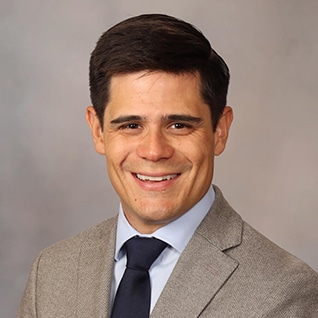
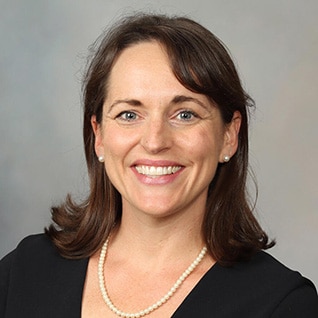
Faculty
Besides caring for patients in their clinical practices, Mayo Clinic's faculty members are committed to teaching and facilitating the growth of medical knowledge. Many of our faculty have published and lectured extensively and are recognized leaders in their fields. You have direct access to these individuals throughout the fellowship.
|
|
Alex Cortez, M.D.Program Director Dr. Cortez has a special interest in the use of technical variant grafts and liver modulation using machine perfusion. |
|
|
Sara Daniel, M.D.Dr. Daniel focuses on peritoneal surface malignancies, gastric cancer, and retroperitoneal sarcoma with research interests in improving intraperitoneal therapies for patients with metastatic disease. |
|
|
Ty Diwan, M.D.Abdominal Transplantation Surgery Fellowship Associate Program Director Surgical Director, Adult Kidney Transplant Program Dr. Diwan is a multi-organ transplant surgeon with a particular focus on obesity within transplantation along with a strong interest in ethics and transplantation. |
|
|
Travis Grotz, M.D.Dr. Grotz is a surgical oncologist with clinical and research expertise in both minimally invasive approaches to gastrointestinal malignancies including robotic and laparoscopic cancer surgery as well as complex, extended resection of advanced soft tissue sarcomas, gastrointestinal cancers and peritoneal metastasis. |
|
|
Julie Heimbach, M.D.Transplant Center Director Dr. Heimbach’s primary focus is on adult and pediatric liver transplantation and living donor surgery. |
|
|
Michael Kendrick, M.D.Department of Surgery Chair Dr. Kendrick has a special interest in innovative minimally invasive approaches for treating pancreatic and hepatobiliary diseases. |
|
|
Jennifer Leiting, M.D.Dr. Leiting has a special interest in minimally invasive surgery for pancreatic and hepatobiliary conditions. |
|
|
Scott Nyberg, M.D., Ph.D.Dr. Nyberg has special interest in fulminant hepatic failure, artificial liver devices, liver regeneration, and tissue engineering. |
|
|
Mikel Prieto, M.D.Surgical Director, Pediatric Kidney Transplant Program and Adult Pancreas Transplant Program Dr. Prieto is an expert in autosomal dominate polycystic kidney disease (ADPKD) and laparoscopic bilateral nephrectomies. |
|
|
Randi Ryan, M.D.Dr. Ryan completed her fellowship through our Abdominal Transplantation Surgery fellowship in July 2023. She is a multi-organ transplant surgeon with a special focus on pediatric kidney transplant and autosomal dominant polycystic kidney disease. |
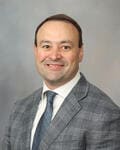 |
Rory Smoot, M.D.Dr. Smoot specializes in the treatment of bile duct cancer, pancreatic cancer, and other pancreatic and hepatobiliary diseases. He serves as the vice-chair of Research for the Department of Surgery. |
|
|
Patrick Starlinger, M.D., Ph.D.Hepatopancreatobiliary Surgery Fellowship Associate Program Director Dr. Starlinger is particularly focused on complex surgical procedures of the liver, bile duct and the pancreas as well as the multidisciplinary treatment of pathologies affecting these organs. His additional colorectal, transplant and vascular surgery training are a unique prerequisite for his practice. |
|
|
Mark Stegall, M.D.Dr. Stegall has a special interest in cellular therapy for the treatment of kidney transplantation rejection. |
|
|
Timucin Taner, M.D., Ph.D.Division Chair, Transplant Surgery Surgical Director, Liver Transplant Program Dr. Taner’s research focuses on liver transplant immunobiology, investigating the interaction between liver allografts and the host immune responses. |
|
|
Cornelius Thiels, D.O., M.B.A.Dr. Thiels specializes in the surgical management of patients with retroperitoneal sarcoma pancreatic cancer. |
|
|
Mark Truty, M.D., M.S.Division of Hepatobiliary and Pancreas Surgery Chair Dr. Truty is sought out for his novel approaches to preoperative treatment of sarcoma tumors. |
|
|
Susanne Warner, M.D.Associate Program Director Dr. Warner specializes in liver, pancreas, gallbladder, and bile duct surgery. Her primary professional goal is to improve life for patients with cancers affecting the liver and pancreas. |
